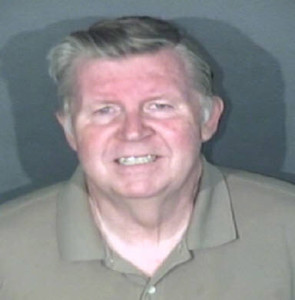
CO-04 (Special Election)
See Full Big Line
(R) Greg Lopez
(R) Trisha Calvarese
90%
10%

President (To Win Colorado)
See Full Big Line
(D) Joe Biden*
(R) Donald Trump
80%
20%↓

CO-01 (Denver)
See Full Big Line
(D) Diana DeGette*
90%

CO-02 (Boulder-ish)
See Full Big Line
(D) Joe Neguse*
90%

CO-03 (West & Southern CO)
See Full Big Line
(D) Adam Frisch
(R) Jeff Hurd
(R) Ron Hanks
40%
30%
20%

CO-04 (Northeast-ish Colorado)
See Full Big Line
(R) Lauren Boebert
(R) Deborah Flora
(R) J. Sonnenberg
30%↑
15%↑
10%↓

CO-05 (Colorado Springs)
See Full Big Line
(R) Dave Williams
(R) Jeff Crank
50%↓
50%↑

CO-06 (Aurora)
See Full Big Line
(D) Jason Crow*
90%

CO-07 (Jefferson County)
See Full Big Line
(D) Brittany Pettersen
85%↑

CO-08 (Northern Colo.)
See Full Big Line
(D) Yadira Caraveo
(R) Gabe Evans
(R) Janak Joshi
60%↑
35%↓
30%↑

State Senate Majority
See Full Big Line
DEMOCRATS
REPUBLICANS
80%
20%

State House Majority
See Full Big Line
DEMOCRATS
REPUBLICANS
95%
5%
 September 21, 2018 12:31 PM UTC
September 21, 2018 12:31 PM UTC 6 Comments
6 Comments
The Colorado maps have avoided the worst excesses of the reapportionment process. Hallelujah, we aren't North Carolina or Maryland.
If Doug Bruce doesn’t like the process, that is a solid basis for considering it, helping to overcome my hesitation to put even more rules into Colorado’s constitution. Seems to me as if nearly everyone should support development of a process that further minimizes partisan arguments, diminishes efforts to advantage one dominant party and increases the need for broader consensus.
Requiring principles for boundary setting in advance, a set of algorithms for compactness, and a random starting point could further assure less bias.
Perhaps he should run for elected and try to change public policy that way. Oh wait a minute…..never mind.
I'm leaning toward a positive vote, but I have three issues:
1. What if one of the major parties does implode (before or) after a mass exodus to a newly born MOTR party? Are the names of the Republican and Democratic parties hardwired into this constitutional amendment?
2. If all races are competitive, then money in politics will absolutely explode, right? Will everyone running for office necessarily be a multimillionaire, or in the pocket of one? Dark money PACs will rule the airwaves.
3. With Democratic majorities in Colorado fairly likely, do we really want to give up our potential advantage just now? Why can't we give this a try in 2022?
Point 3, first. The re-apportionment will happen AFTER the 2020 census (assuming the Trump Sad!-ministration lackey Wilbur Ross is able to make it happen on time). Elections in 2020 will be under existing rules and districts.
2. Money in politics has ALREADY exploded. Television stations are excited about the contributions to their bottom lines. Consultants are pleased. I just read an article about an Iowa state Senator who had Presidential campaign staff (already fairly highly paid) competing for the opportunity to pay him $8-10,000 per month to join their campaigns (annual pay from the state is $25,000 and a per diem for official sessions). One king maker on the Republican side is rumored to have been offered $300-500,000 for his endorsement [and $300,000 goes a long ways in Iowa real estate or buying "only" a senator].
1. Good point, and it probably would have been better if the committee members were assigned by proportion of registrations (providing an incentive to get people to register). But, party labels have remained the same for 150 years. If the two-party system blows up and we have one major and multiple minor parties, the once a decade re-apportionment process will be the least of numerous governing assumptions that need to be addressed.
Point 3 first. Yes, I know. That's why I suggested taking a run at this in 2022 elections so that if we have a cemented majority in 2020, we use the current rules, not the "fair and balanced" rules. Then they wouldn't have any impact until 2032, and I'll be in a rest home or my ashes scattered in the mountains 😉
Point 2. Yes, it just keeps getting worse (or as with income inequality, only the most corruptible candidates get the big money from the finite pool available, starving out the good candidates)
Point 1. I agree it is a low percentage problem, but you'd think for a constitutional amendment, they'd have a little foresight. Probably means Colorado would retain the legacy party name as an alias to the national MOTR party if this eventuality ever comes about.
But yes, I'll probably grit my teeth and vote in favor of it. But if Kent Thiry becomes our next Senator because of this, I'll hold you personally accountable!
Point 3 … I try to think of the best thing to do without trying to figure out partisan advantage. Delaying the improvement on the off chance Democrats win a sizeable advantage in the next two elections doesn't seem like the best thing to do.
Point 2 … there have been a number of campaigns able to be competitive based on "citizen funding" … and some where excess amounts of money appear to have not been sufficient, and the underfunded won. 2016 national elections had about $6.5 billion spent. That's less than $20 per person, under $50 per voter.
Point 1 … foresight and Constitutional amendments. Don't know why we'd start now. These two are surprisingly bipartisan enough to get through the Legislature … expecting thinking outside the box of the existing system may well be a bridge too far.
And you can blame me more nearly anything … but Kent Thiry seems like a long, LONG shot for Senator. I think it would take Gardner being named to the Cabinet or VP, a new Republican candidate, a fair-to-middling Democratic candidate, and Thiry running as an Independent and pushing LOTS of money very, very well for him to eke out a victory.